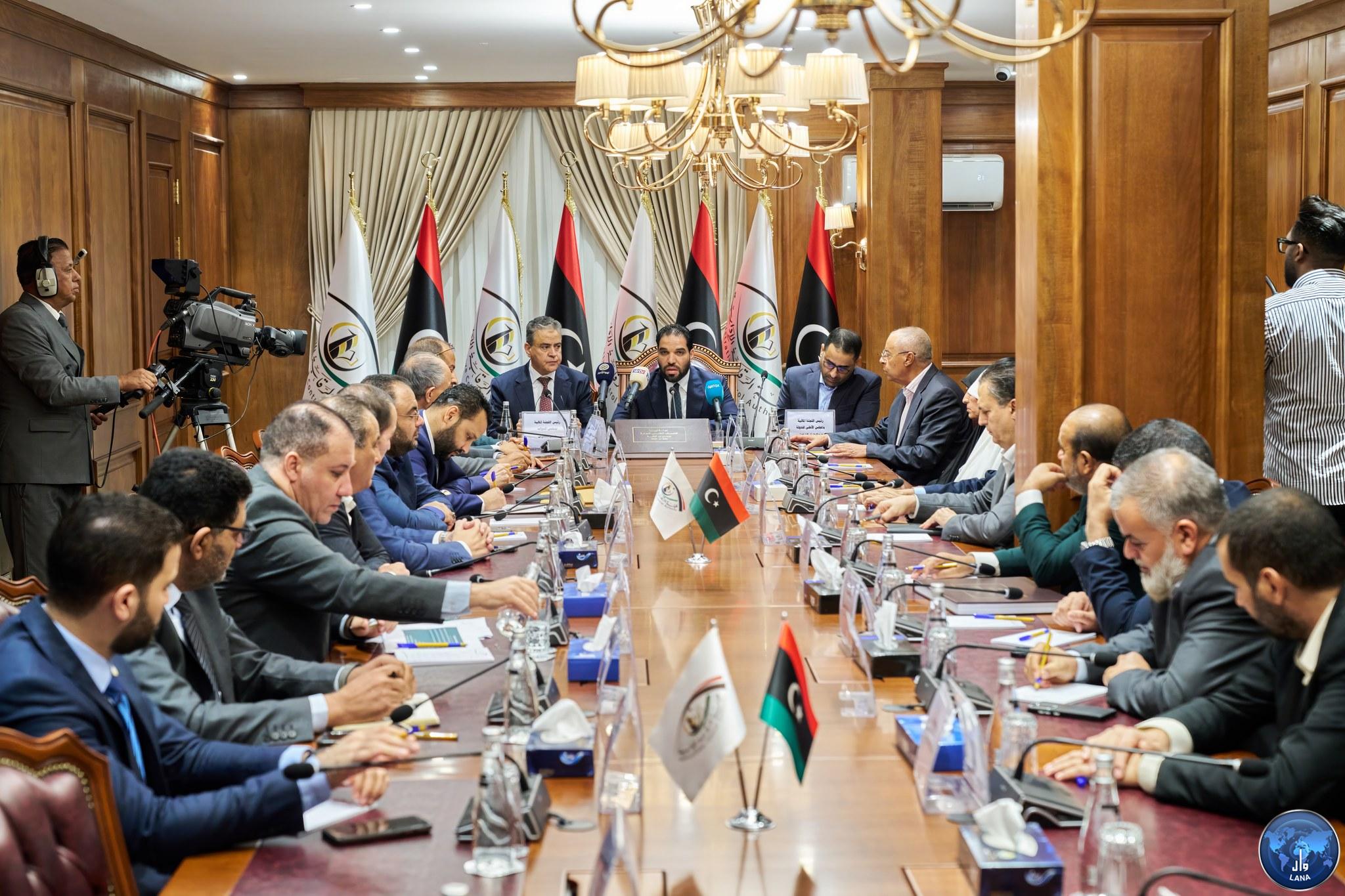Qaderbouh announces the completion of the final state accounts for the years 2011–2015
Pulbished on:
Tripoli, November 19, 2025 (LANA) – The head of the Administrative Control Authority, Abdullah Qaderbouh, announced the official completion of the final accounts for the Libyan state for the years 2011–2015.
This came during an expanded meeting held today, Wednesday, in Tripoli, attended by Omar Tantoush, Chairman of the Finance, Planning, and Public Budget Committee of the House of Representatives; Abdul Jalil Al-Shawish, Chairman of the Finance Committee of the High Council of State; a number of members of both councils; Mohammed Al-Hwiej, Minister of Economy and Trade; Abu Bakr Al-Jafal, Undersecretary of the Ministry of Finance; Mohammed Al-Zaidani, Minister of Planning; Ali Mansour, Chairman of the Committee for Monitoring the Closure of the State's Final Accounts; Al-Taher Al-Wahishi, Director of the Accounts Department at the Ministry of Finance; members of the committee; and directors of relevant departments and offices within the Authority and the Ministry.
Qaderbouh explained that reports received through its committees revealed a significant flaw in the financial system resulting from the failure to close the final accounts since the last account was submitted to the Audit Bureau in 2007. He stated that this flaw affected the assessment of the state's financial position. He indicated that the Authority worked in coordination with the Finance Committees of the House of Representatives and the High Council of State to launch the work of the National Committee, which held periodic meetings with the relevant authorities and today completed this requirement. Qaderbouh said, “We don’t have a unified fiscal policy, and we face several challenges. We want to contribute to achieving the public interest of the state, and we welcome the unification of public spending that took place yesterday. We are aware of the economic problems facing the Central Bank of Libya.”
For his part, Ali Mansour, head of the National Committee for Monitoring the Closure of Final Accounts, explained that the delay of more than fifteen years has negatively impacted the economy and the determination of the real exchange rate. It has also weakened accounting and accountability, and presented a negative financial image of Libya in local and international reports. He noted that the committee’s work is being carried out in three phases, covering the years 2011–2015, 2016–2020, and finally 2021–2024. He added that the work faced significant challenges, including the absence of a general budget law, weak coordination between entities, and outdated data or missing documents. Despite this, the national teams managing the accounts were able to close the accounts for the first phase in a record time of 75 days. Currently, the entries are being finalized and the missing data is being processed, a step that stakeholders consider fundamental to reforming the financial system and enhancing transparency and governance of public funds in Libya. The head of the Finance Committee in the House of Representatives, Omar Tantoush, affirmed that oversight bodies, including the Administrative Control Authority and the Audit Bureau, are responsible for monitoring plans and preventing deviations that hinder the expansion of public spending. He noted that this achievement is historic for the contributing entities, foremost among them the Administrative Control Authority, and expressed his hope that the committee's efforts would continue and that any anticipated obstacles would be overcome.
For his part, the head of the Finance Committee in the High Council of State, Abdul Jalil Al-Shawish, stated that "closing the final accounts reinforces the confidence of international institutions in Libya." He emphasized that reaching an agreement on closing the final accounts and unifying public spending is crucial, especially given the current state of increased expenditure.
...(LANA)...




